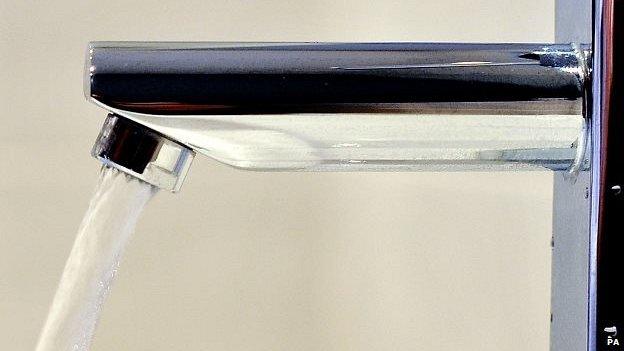Lancashire bug leads to 'boil water' warning
- Published

Residents in parts of Lancashire should boil water for drinking, brushing teeth and food preparation until further notice, United Utilities has said.
It follows routine tests that found "low" traces of the microscopic bug cryptosporidium at Franklaw water treatment works outside Preston.
The warning affects Blackpool, Chorley, Fylde, Preston, South Ribble and Wyre.
Martin Padley, from United Utilities, said it was "precautionary" and extra tests were being carried out today.
Risk of illness
Mr Padley, who is the company's chief scientific officer, added: "We apologise for the inconvenience but the health of our customers is absolutely paramount."
Cryptosporidium can cause gastrointestinal illness such as diarrhoea and abdominal cramps.
People can continue to use tap water without boiling for "general domestic purposes such as bathing, flushing toilets or washing clothes", a United Utilities spokesman said.
He added the firm hoped to lift the advice to boil water as soon as possible, but it was likely to remain in place until at least this evening.
Customers are urged to boil water and then let it cool to prevent the risk of scalding.
Cryptosporidium exists in the environment in a form called an oocyst, which is less than a tenth of the thickness of a human hair.
Traces were found in recent samples of water from Franklaw works, a United Utilities spokesman added.

Do you live in the affected region? Let us know about your experiences. Email haveyoursay@bbc.co.uk, external with your stories.
Please include a contact number if you are willing to speak to a BBC journalist. You can also contact us in the following ways:
WhatsApp: +44 7525 900971
Send pictures/video to yourpics@bbc.co.uk, external
Tweet: @BBC_HaveYourSay, external
Send an SMS or MMS to 61124 or +44 7624 800 100